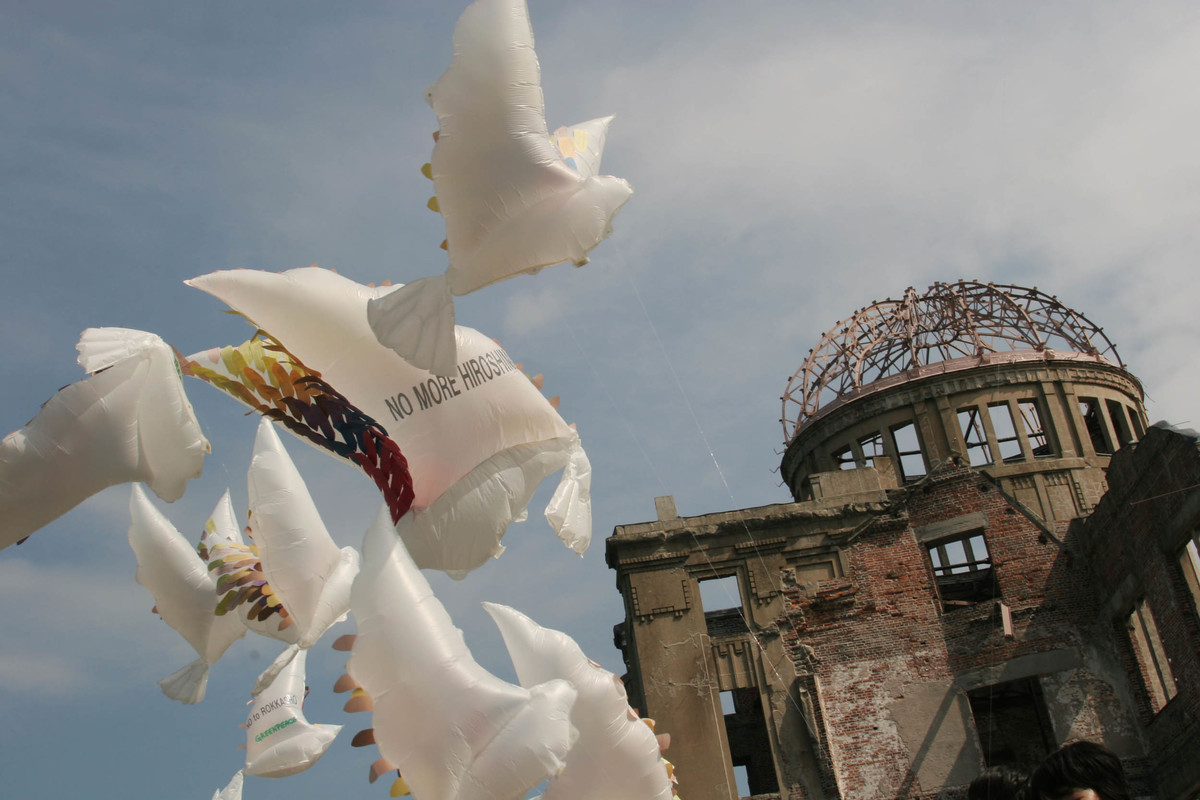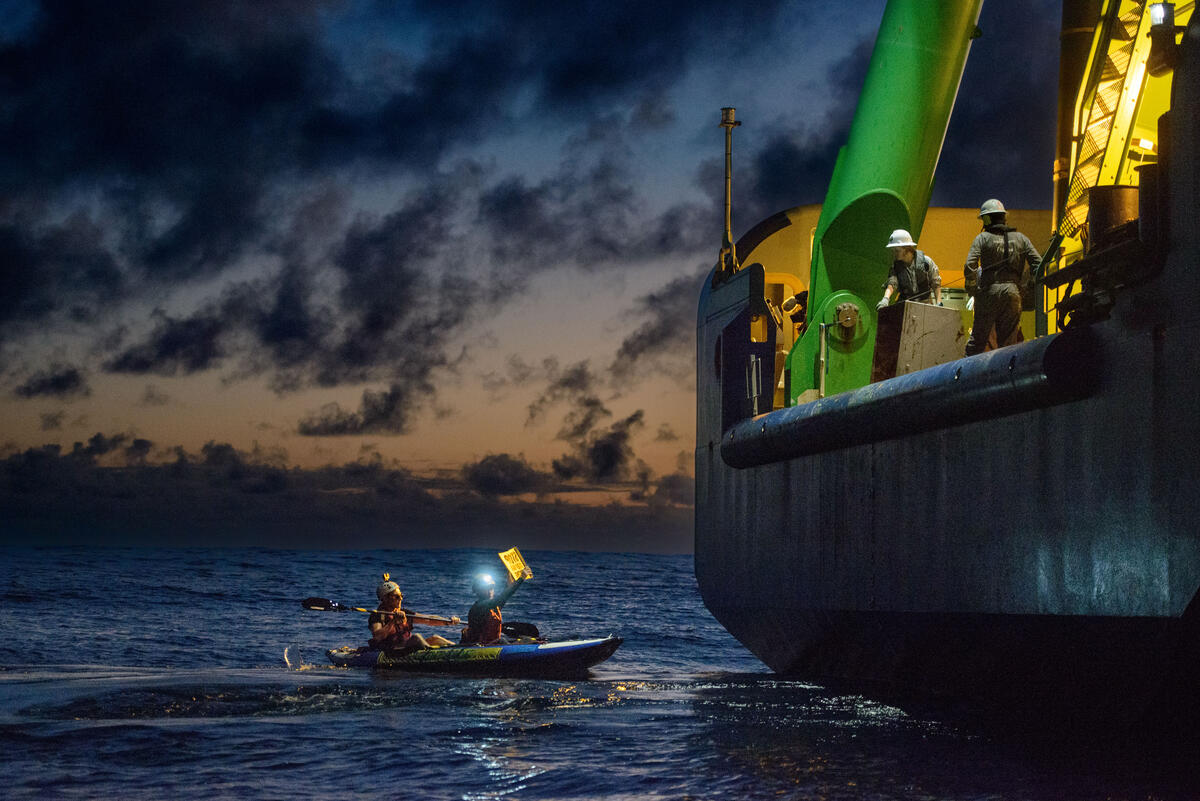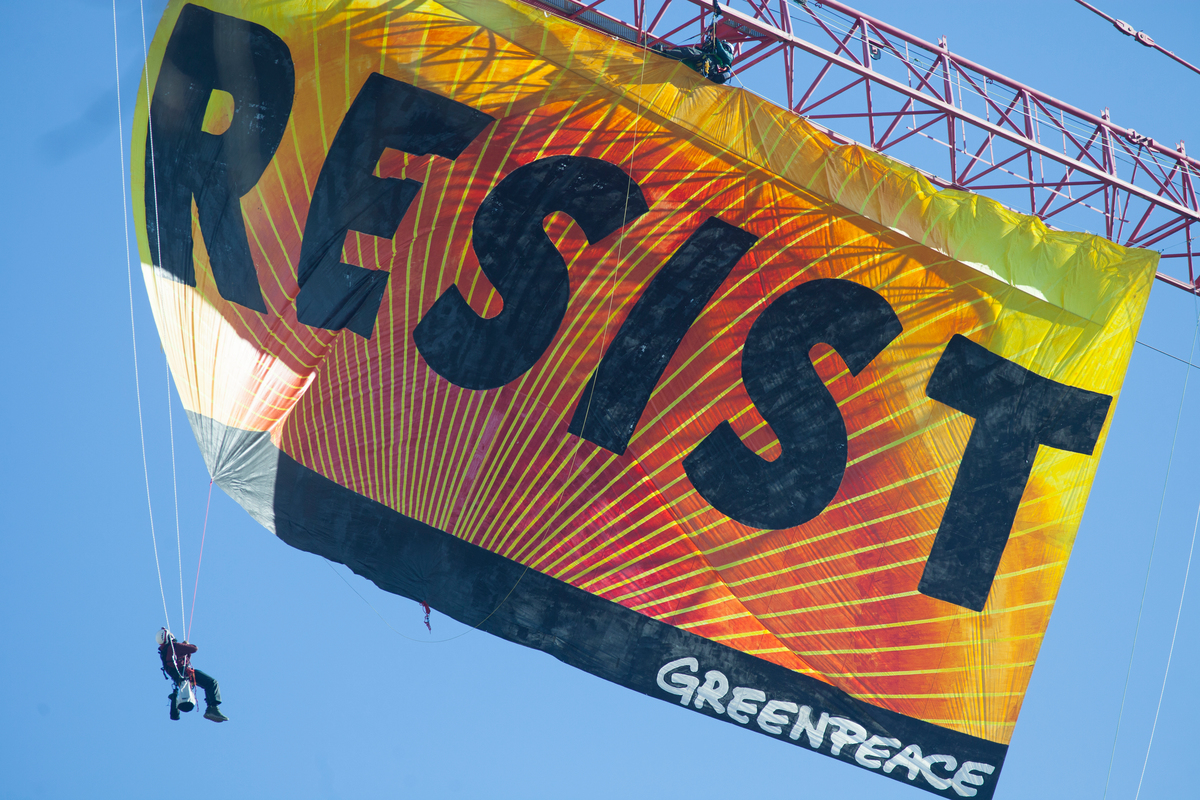“Proud” and “hopeful” moment: the newest Greenpeace office will focus on fighting crimes against nature and driving green reconstruction
Kyiv, Ukraine – Greenpeace Central and Eastern Europe is formally opening a new office in Kyiv, Ukraine today. The global environmental network has worked with allies in the country since Russia’s full-scale invasion of Ukraine in 2022 and will now officially expand its offices in order to accelerate its work on green reconstruction projects in Ukraine, as well as investigating environmental war crimes resulting from Russia’s invasion.[1] Greenpeace will also continue to closely monitor the security concerns and radiation levels around Ukrainian nuclear power plants.[2]
Natalia Gozak, office director of Greenpeace Ukraine, said: “The people of Ukraine deserve a strong and vibrant Greenpeace presence, to support activist and democratic values in the face of war. For the safety and security of the nation, Ukraine needs to champion the transition away from fossil fuels. Our mission is to help Ukraine rebuild social infrastructure in a sustainable way, harnessing the clean power of solar panels and wind turbines. These solutions are not just green – they are the pathway to a resilient and sustainable future for Ukraine.”
The office opening is another milestone in Greenpeace’s work in Ukraine. As soon as the war began, neighbouring country offices of Greenpeace Central and Eastern Europe (CEE) – Slovakia, Poland, Hungary, Romania, Bulgaria – were involved in humanitarian work, supporting allies and refugees. Collaborating with local environmental organisations, Greenpeace has already documented the war’s environmental devastation, including the destruction of the Kakhovka dam; scrutinised the crises at Chornobyl and Zaporizhzhia Nuclear Power Plant, and implemented first green reconstruction ‘lighthouse projects’.[3,4,5,6]
Alexander Egit, Executive Director of Greenpeace CEE, of which the new Ukrainian office is a part, said: “Over the next few years we expect billions of euros to be invested in reconstruction in Ukraine by the European Union and beyond. We want to make sure Ukraine will be rebuilt in a greener and more resilient way and for this work Greenpeace’s strict financial independence from state or corporate funding is a key prerequisite. Our goal is to support reconstruction with decentralised renewable energy for an independent, modern and green Ukraine – now and after the war.”
Russia’s invasion of Ukraine had a huge impact on energy, food, finance, biodiversity, trade, nuclear security, climate and geopolitics that Greenpeace organisations around the world reacted to with sweeping shifts in their campaigns. The Ukrainian Greenpeace office is also strategically tightly knitted into the global Greenpeace network – the end of fossil fuel dependency, nature restoration and the showcasing of the dangers of nuclear energy are strategic cornerstones for the work of Greenpeace all over the world.
Mads Christensen, Executive Director of Greenpeace International, said: “I’m deeply moved, hopeful and incredibly proud of the Greenpeace Ukraine team and everyone who played a part in establishing this new Greenpeace office in such difficult circumstances. Our efforts in Ukraine are already illuminating the path forward, demonstrating how renewable energy can help sustain schools and hospitals with power even amidst the horrors of war. But this is just the beginning. When green reconstruction is scaled up, it can unlock the true resilience of entire nations. With the new office in Kyiv, Greenpeace will work with the courageous and dedicated Ukrainian people to build a green and safe Ukraine. Together, we are not just imagining a better future—we are creating it.”
END
Notes:
Photos (embargoed to 08:00 CEST on 10 September) can be found in the Greenpeace Media Library
Greenpeace Ukraine website (in English and Ukrainian): https://www.greenpeace.org/ukraine/en
1. The Greenpeace Reconstruction of Ukraine
3. Map of environmental damage
4. The destruction of Kakhovka Dam is an environmental war crime
5. Investigation inside the Chornobyl Exclusion Zone
6. Zaporizhzhia Nuclear Power Plant
Contacts:
Media interviews can be arranged via the following contacts:
Daryna Rogachuk Greenpeace Ukraine communications officer, +380 63 598 2600, [email protected]
Marija Tomac, Greenpeace CEE, +385 95 6274 528, [email protected]
For the latest international releases follow us on Twitter/X @greenpeacepress



